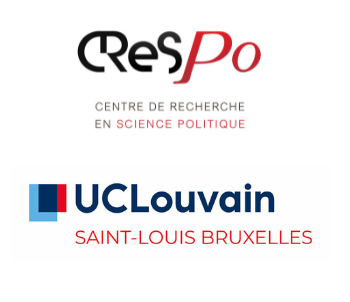(English Version)
Angèle Minguet mène une recherche doctorale à l’Université de Rome, La Sapienza, au Département des sciences politiques, sous la supervision des professeurs Luca Scuccimarra et Giovanni Ruocco. Elle a étudié l’histoire grecque ancienne et les études européennes en Belgique (FUNDP, UCLouvain, Saint-Louis), avant de travailler pendant quelques années avec des organisations internationales et des ONGs sur des questions de droits de l’homme et de l’environnement en Europe. Aujourd’hui, ses recherches portent sur la justice environnementale et sociale mondiale.
Son objectif est double. Tout d’abord, j’ai l’intention d’étudier à la lumière d’approches constructivistes et critiques le cadre juridique environnemental international, ainsi que l’actuelle « écologisation » de nombreuses constitutions nationales et internationales. Deuxièmement, elle tient à confronter les résultats aux discours des organisations de justice environnementale du monde entier, en mettant l’accent sur deux communautés non occidentales, l’une en Inde (Pondichéry) et l’autre au Nigeria (Delta du Niger, Ogoniland ). Une attention plus spécifique sera accordée aux plaintes portées par des citoyens contre les multinationales devant divers tribunaux. Le but final est de proposer une réflexion sur l’opportunité d’une « Constitution environnementale mondiale » dans l’ère post-coloniale et post-westphalienne.
À l’Université de Saint-Louis, elle a travaillé sous la supervision d’Amandine Orsini sur la gouvernance environnementale mondiale et le comportement des multinationales lors de la rédaction d’accords internationaux sur l’environnement.
Elle est chercheure associée au CReSPo (2022-2024).
Elle donnera le cours « Analyse des relations internationales » (HDPO1312 – 30 heures – 1er quadrimestre) pour l’année académique 2022-2023 avec Amandine Orsini.
Articles et chapitres d’ouvrages collectifs
- Minguet A. (2021), Environmental justice movements and restorative justice. Dans Aertsen I. & B. Pali (eds). The International Journal of Restorative Justice, Special issue: Environmental restorative justice.
- Minguet A. (2020), Cleaning up the mess ? The EU’s answer to environmental conflicts within and beyond its borders. Dans : Orsini A., Kavvatha E. (ed.) (2020), EU environmental governance : current and future challenges. London : Routledge.
- Minguet, A. & Vertongen, Y. (2018) Saillans: de l’utopie à l’expérimentation politique, Revue Politique (octobre 2018), online.
Comptes-rendus
- Preston, C.J. (ed. 2016). Climate Justice and Geoengineering. Ethics and Politics in the Atmospheric Anthropocene. London: Rowman & Littlefield International. Reviewed by Angèle Minguet in Global Environmental Politics, May 2018, Vol. 18, No. 2, pp. 160–162 (online).
- Epstein, C. (ed, 2017), Against International Relations Norms: Postcolonial Perspectives, Abingdon: Routledge, 2017, reviewed by Angèle Minguet in Antipode (online), April 2018.
English Version
Angèle Minguet is a PhD candidate at the University of Rome, La Sapienza, in the Departement of Political Sciences, under the supervision of Professors Luca Scuccimarra and Giovanni Ruocco. She studied Ancient Greek History and European Studies in Belgium (FUNDP, UCL, Saint-Louis), before working for a few year with international organizations and NGOs on human rights and environmental issues in Europe. Today, her research is on global environmental and social justice.
Her objective is twofold. First, she intends to use constructivist and critical approaches to examine the international environmental legal framework, as well as the greening of national and international constitutions. Secondly, she expects to confront the results to the discourses of ‘Environmental Justice Organisations’ from all over the world, with a focus on two non-Western communities, one in India (Pondicherry) and the other one in Nigeria (Niger Delta, Ogoniland). A specific attention will also be given to complaints from citizens against Multinational Corporations before domestic, regional and transnational Courts. The final purpose is to propose a reflection on the desirability of a ‘Global Environmental Constitution’ in a post-colonial and post-westphalian era.
At Saint-Louis University, from May 15th to July 15th, she is supervised by Prof. Amandine Orsini on Global Environmental Governance and on Multinational Corporations’ behaviour during the making of international environmental agreements.
